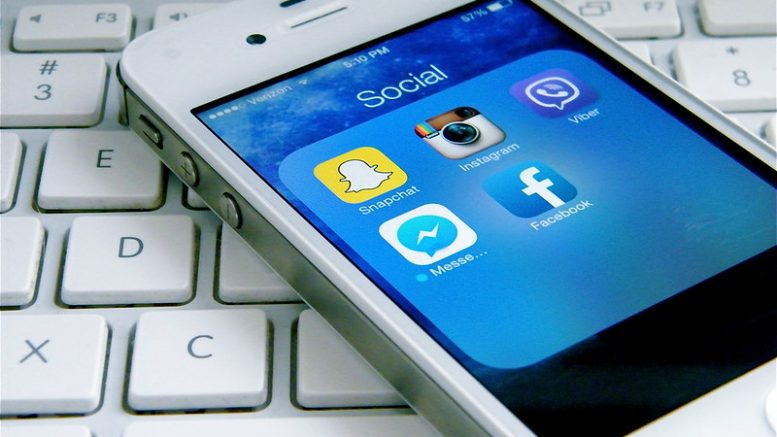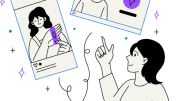Elizabeth McCann/Contributing Writer
From the moment I wake up to the time I go to sleep, everywhere I turn I see the word “coronavirus.” The common thread, however, is that I always see it on a computer, phone or television screen.
I turn on the news and see a coronavirus headline with the daily count of those infected and those who have died. When I flip through my phone, I see coronavirus memes on Tik Tok, Instagram and Twitter. When I’m on Zoom on my computer, it’s inevitable for coronavirus and its effects on our lives to be mentioned.
A month ago today, I would have never predicted that my life would be like this. I’m not complaining, though. Currently, my family and I are healthy, and I have all the materials I need at my house, but my daily patterns and routines have drastically changed.
However, what strikes me the most is social media’s many roles – good and bad – during this pandemic.
During this unprecedented time, I’m very thankful for social media. It has given everyone around the world the ability to interact during isolation. Through apps like Instagram, Twitter, Facebook, Tik Tok and Snapchat, we’re able to stay connected with each other and share our experiences and feelings.
As a result, through the sharing of everyone’s reality on social media, we realize that we’re not alone. For example, on many platforms, people are posting their homework setups, social media photo and video challenges, activities to kill boredom, and memes to lighten up the feelings of fear, angst, and uncertainty due to the pandemic.
Besides keeping us out of social isolation, social media has given us the opportunity to communicate with people across the globe. Social media platforms have allowed individuals to post about the situation in their countries and communities in the face of the coronavirus. As a result, we’re able to track the spread and progression of the pandemic through the lens of ordinary individuals.
Just think how different things were a century ago when the United States fell victim to the Spanish flu. There were no social media outlets like Facebook to connect individuals in different continents to warn and educate others on the disease.
Although we were not completely ready for this threat, many accepted its inevitability to enter the United States. We may not have taken every measure necessary to be prepared, but valuable, constant reminders of social distancing, self quarantining, hygienic practices like frequent hand washing and their importance were heavily broadcast on the internet.
Though social media has proven to be a positive tool for these arduous times, its accessibility and usage have had several negative consequences which may pose a danger to many.
Specifically, the dissemination of fake coronavirus cures and remedies, fabrication of political conspiracy theories and the circulation of false information about COVID-19 can have serious repercussions.
There are thousands of rumors being spread ranging from the Chinese government developing this disease as a biological weapon, governments hiding a cure to control the population, to coronavirus being a complete hoax. These conspiracy theories are aimed at and rely on vulnerable people who will spread them to others. This is harmful because it creates a general distrust of the government which needs its constituents to comply with its regulations to contain the spread of coronavirus.
Out of desperation, people are blindly following the advice of others on social media. This allows dishonest individuals to exploit people’s anxiety by selling and propagating fake remedies or tips, such as eating multiple bananas daily and blow-drying your sinuses.
Right-wing conspiracy theorist Alex Jones, for instance, publicized a colloidal silver treatment to cure the virus on his site InfoWars.com. Luckily, this was deleted, but some may have had access to it and taken the false treatment. For reasons like this, social media platforms like Instagram, Facebook and Twitter have been reviewing posts to find false statements about the virus and delete them to control the spread of misinformation.
Many also blame the Chinese for the emergence and spread of coronavirus, since it may have developed in a live-animal market in Wuhan, China. As a result, social media platforms have become a hot spot for hate speech, racism and xenophobia against the Chinese.
Social media in these unpredictable times can be a source that brings people together or a platform that tears us apart. It’s our job to stay positive for everyone’s sanity. If we spread misinformation, hateful comments or mass hysteria, we are contributing to the problem and endangering ourselves, our community, our nation and our world.
Featured image by magicatwork on Flickr.
DISCLAIMER:
The opinions presented within this page do not represent the views of PantherNOW Editorial Board. These views are separate from editorials and reflect individual perspectives of contributing writers and/or members of the University community.
Have questions or comments for our writers? Send an email to opinion@fiusm.com with your name and the name of the column in the subject line.






Be the first to comment on "Social Media Unites Or Divides Us Over COVID-19"